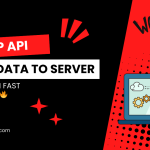The Best Fluffy Pancakes recipe you will fall in love with. Full of tips and tricks to help you make the best pancakes.
The Evolution of IoT and Edge Computing
The Internet of Things (IoT) has revolutionized the way we interact with technology, allowing devices to communicate and exchange data seamlessly. On the other hand, edge computing has emerged as a solution to the challenges posed by traditional cloud computing, enabling data processing to occur closer to the source.
Enhancing Efficiency through Edge Computing
By leveraging edge computing, IoT devices can reduce latency and bandwidth usage by processing data locally. This not only enhances efficiency but also enables real-time decision-making, critical for applications like autonomous vehicles and industrial automation.
Maximizing Performance in Connected Devices
IoT devices are often constrained by limited processing power and storage capacity. Edge computing addresses these limitations by offloading computation-intensive tasks to edge servers, thereby enhancing the performance of connected devices.
The Benefits of Integration
When IoT and edge computing converge, they create a powerful ecosystem that maximizes efficiency and performance in connected devices. By distributing computing tasks between IoT devices and edge servers, organizations can optimize resource utilization and improve overall system reliability.
Future Outlook
As IoT adoption continues to rise and edge computing becomes more prevalent, the intersection of these technologies will play a crucial role in shaping the future of connected devices. By embracing this synergy, organizations can unlock new opportunities for innovation and drive digital transformation across industries.




